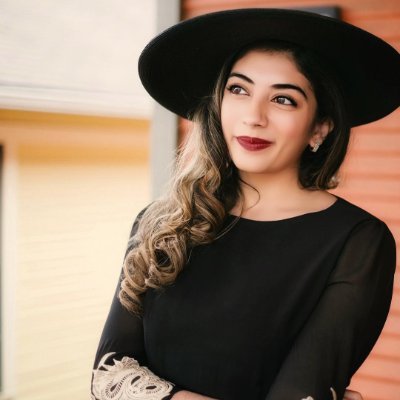While it may seem like a pipe dream to launch a new company amidst a global pandemic, it’s exactly what Sofiya Deva is doing with This Same Sky. It’s a business model she describes as intentional, which is something the world may need more of in the weeks to come.
Intentional can seem like a curious way to describe a business, but, according to Deva, it’s the foundation of success.
It’s a brand that has thus far appeared to feature a feast of elegance, warmth and color. Designed for women that march to the beat of their own drummer, the launch line—The Intuition Series—features intricate scarves, cropped Haori-inspired jackets, and a mini capsule of essentials—and every piece feels like a work of art. Like a vision board brought to life, it’s the exact goodwill escape many of us can use right now.
More importantly however, her products are designed to help women connect with themselves, and the launch line is all about navigating transitions.
I sat down with her to learn a little more about how to transition well, set intentions, and run a conscious business.
Why did you first begin to think about transitions?
I was a busy marketing exec for the last few years, and it felt like I was always getting on a plane, checking into a hotel, or trying to reestablish a routine while at home.
With all the travel, change became my constant, and I realized that we’re always in the middle of some kind of transition.
Sometimes it’s dramatic, like right now, when we’re all transitioning to staying inside all the time, but sometimes, it’s a simple transition, like going from a busy work day to dinner with family.
Regardless of the scale, I began to wonder whether I could cultivate a skill set for transitioning that would actually allow me to stay connected with myself, my body and my goals even in times of stress. I wondered if I could get better at adapting to all the changes in my life.
So, what have you learned?
I’ve learned how powerful intentions are. In fact, I’m anchoring the launch line of my new personal and home accessories company, This Same Sky, on the three intentions that allow us to navigate transitions with grace—
letting go, breaking through and being still.
As a set, they’re called The Intuition Series because they all require tapping into inner wisdom.
I’ve gotten into the habit now of checking in with myself to see what I most need, whether that’s releasing something (a thought, a desire, an image), taking a leap of faith, or just giving myself permission to slow down and observe.
How do you begin a practice of intention setting if you’re new to it?
I like to say that intention setting is two parts ritual, and one part follow-through because mindset is key.
A good place to start is by practicing relaxation and visualization.
If our mind is all over the place, it’s hard to focus on one intention. So I alway start with a meaningful pause, and bring my attention to my breathing. Once I’ve relaxed, I think about how I want to feel and what that looks like in the world. I imagine it as though it were already happening.
Once I have a clear sense of the feeling, I might give myself an affirmation or word to keep it top of mind.
Then I keep coming back to it, so even as circumstances change, I don’t lose sight of what I’m working and moving towards.
Why did you make intention setting so central to your business?
I think there’s actually a secret craving for intentionality behind the growing interest in minimalism. We don’t just want less stuff; we want more meaning in our lives.
And generally, what’s trending in the marketplace has its roots in our needs and dreams as human beings. So it starts there for me. Recognizing that I want more in my day to day.
What I buy, where I shop, how I dress, how I gift—I want all these small acts to be more conscientious. In practical terms, like fair wages and treatment for the people who produce them. But also in a more soulful sense, where I want the brands I interact with to double as storytellers that affirm diversity and inclusion.
And I don’t think I’m alone in that.
In a business context, we see this as a growing interest in and emphasis on purpose. Being profitable isn’t enough anymore, there needs to be a deeper sense of identity and direction if you’re going to stand out and evolve with the changing tides.
For me, intentionality and purpose are very connected because I believe how you do one thing is how you do everything.
So for me and my team, we have a purpose of building a smaller, stranger world, but we also have an ethos of intentionality that means we bring presence and purposefulness to everything we do, whether it’s product design, vendor relations, or creating a sustainable supply chain.
Sometimes it means doing less, or moving more slowly, but ultimately it means that we put a piece of ourselves into our work, and it’s richer for it. And of course, that also humanizes our brand and inspires our community to invest in our success.


